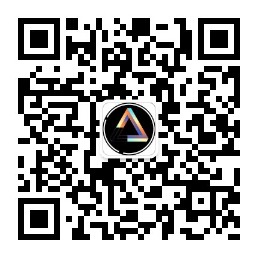This dataset contains the flux observation matrix measurements obtained from the automatic weather station (AWS) at the Daman superstation between 10 May and 26 September, 2012. The site (100.37223° E, 38.85551° N) was located in a cropland (maize surface) in the Daman irrigation, which is near Zhangye, Gansu Province. The elevation is 1556.06 m. The installation heights and orientations of different sensors and measured quantities were as follows: air temperature and humidity profile (AV-14TH; 3, 5, 10, 15, 20, 30, and 40 m, towards north), wind speed and direction profile (windsonic; 3, 5, 10, 15, 20, 30, and 40 m, towards north), air pressure (CS100; 2 m), rain gauge (TE525M; 2.5 m), four-component radiometer (PSP&PIR; 12 m, towards south), two infrared temperature sensors (IRTC3; 12 m, vertically downward), photosynthetically active radiation (LI-190SB; 12 m, towards south), a TCAV averaging soil thermocouple probe (TCAV; -0.02, -0.04 m), soil temperature profile (AV-10T; 0, -0.02, -0.04, -0.1, -0.2, -0.4, -0.8, -1.2, and -1.6 m), soil moisture profile (CS616; -0.02, -0.04, -0.1, -0.2, -0.4, -0.8, -1.2, and -1.6 m), and soil heat flux (HFP01SC; 3 duplicates with one below the vegetation; and the other between plants, -0.06 m).
The observations included the following: air temperature and humidity (Ta_3 m, Ta_5 m, Ta_10 m, Ta_15 m, Ta_20 m, Ta_30 m, and Ta_40 m; RH_3 m, RH_5 m, RH_10 m, RH_15 m, RH_20 m, RH_30 m, and RH_40 m) (℃ and %, respectively), wind speed (Ws_3 m, Ws_5 m, Ws_10 m, Ws_15 m, Ws_20 m, Ws_30 m, and Ws_40 m, m/s), wind direction (WD_3 m, WD_5 m, WD_10 m, WD_15 m, WD_20 m, WD_30 m, and WD_40 m, °), air pressure (press, hpa), precipitation (rain, mm), four-component radiation (DR, incoming shortwave radiation; UR, outgoing shortwave radiation; DLR_Cor, incoming longwave radiation; ULR_Cor, outgoing longwave radiation; Rn, net radiation; W/m^2), infrared temperature (IRT_1 and IR_2, ℃), photosynthetically active radiation (PAR, μmol/ (s m^-2)), average soil temperature (TCAV, ℃), soil heat flux (Gs_1, below the vegetation; Gs_2, and Gs_3, W/m^2), soil temperature (Ts_0 cm, Ts_2 cm, Ts_4 cm, Ts_10 cm, Ts_20 cm, Ts_40 cm, Ts_80 cm, Ts_120 cm, and Ts_160 cm, ℃), and soil moisture (Ms_2 cm, Ms_4 cm, Ms_10 cm, Ms_20 cm, Ms_40 cm, Ms_80 cm, Ms_120 cm, and Ms_160 cm, %).
The data processing and quality control steps were as follows. (1) The AWS data were averaged over intervals of 10 min; therefore, there were 144 records per day. The missing data were filled with -6999. (2) Data in duplicate records were rejected. (3) Unphysical data were rejected. (4) In this dataset, the time of 0:10 corresponds to the average data for the period between 0:00 and 0:10; the data were stored in *.xlsx format. (5) Finally, the naming convention was AWS+ site no. Moreover, suspicious data were marked in red.
For more information, please refer to Liu et al. (2016) (for multi-scale observation experiment or sites information), Xu et al. (2013) (for data processing) in the Citation section.

 No.11010502040845
No.11010502040845